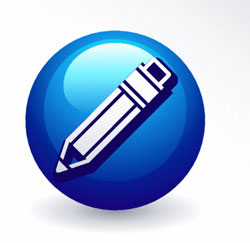Agents, brokers, buyers and sellers all like the convenience of secure electronic signatures for taking a lot of the time and hassle out of real estate transactions. Using a fax machine to forward offers and counter offers has long been a mainstay of the industry, but the result was often times an illegible document that could create misunderstandings. With online, electronic communications becoming the norm, Digital Ink, the electronic signature solution from zipLogix, is a tool needed by all of HAR active real estate agents.
The agreement that HAR has entered into with zipLogix will provide unlimited usage of the Digital Ink electronic signature product to all subscribers of the MLS or Commercial Information Exchange at no additional charge. So both residential and commercial practitioners will be able to benefit from access to these important tools. Since Digital Ink is a product from the same firm that provides the ZipForms product, the integration between that forms management software and the electronic signature component is seamless.
The Agreement was signed in early May and all users of zipForms have access to Digital Ink. zipLogix is working on a “free-standing” Digital Ink website that will make the e-signature tools more generally available outside of the ZipForms software application. If a firm has setup a customized ZipForms library that includes that firm’s own forms, some additional setup was required, but should have been completed by now.
Those members who have existing accounts with another electronic signature provider may continue to use that service under the terms of their service agreement. Switching to Digital Ink should result in savings. Comparing the published discounted REALTOR® rates for the leading competitor’s product, each MLS/CIE subscriber would save between $180 and $300 per year due to this free benefit.
Different electronic signature solutions utilize different security certification methods that change the way the software behaves. Unlike some other solutions, Digital Ink utilized encrypted certificates that are embedded into a secure Adobe PDF file structure. The advantage this embedded PDF solution is that it does not require that a copy of the signed document be sent and stored on a server of the certificate provider. The tradeoff is that the PDF file being signed needs to be passed around among the various signatories.


